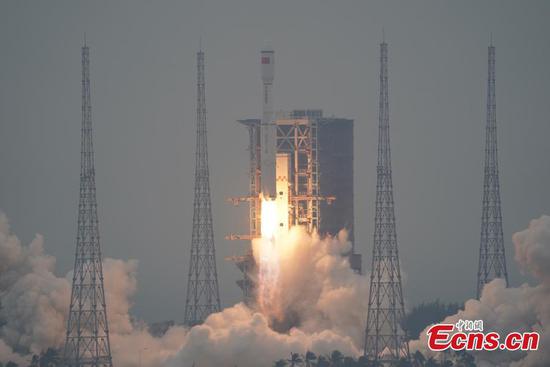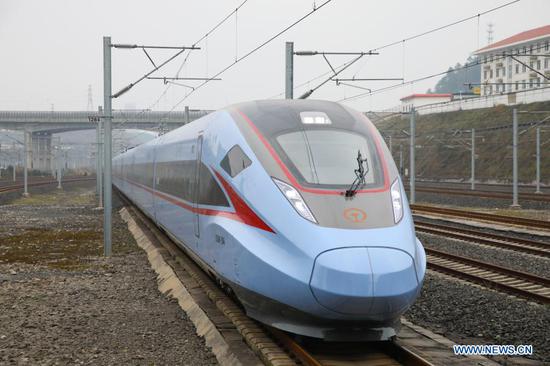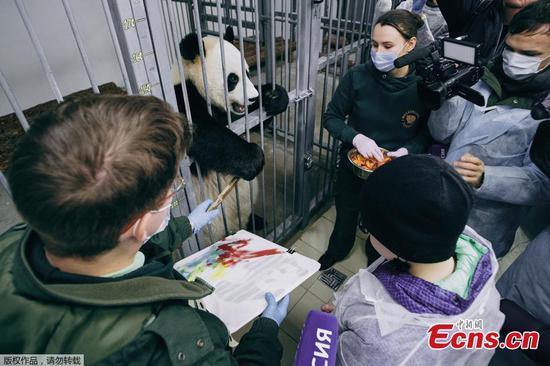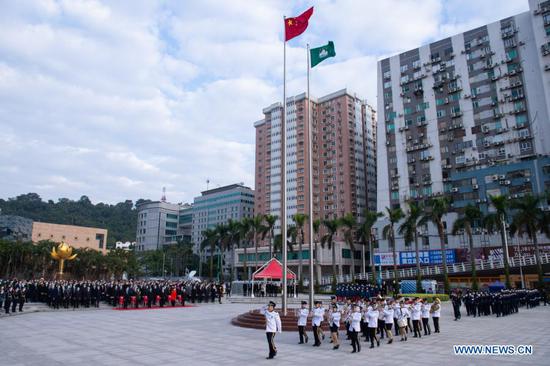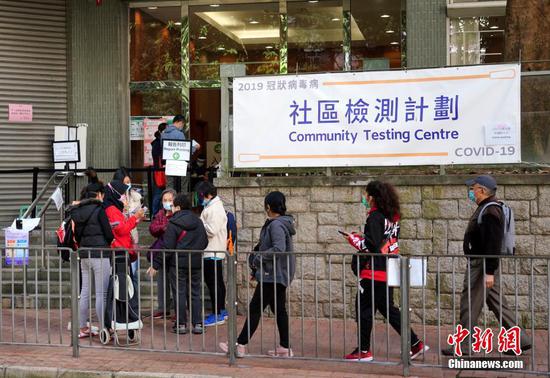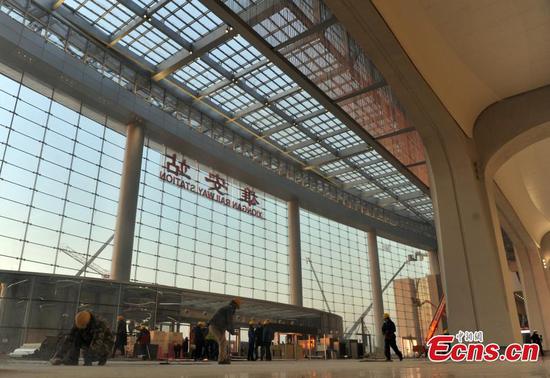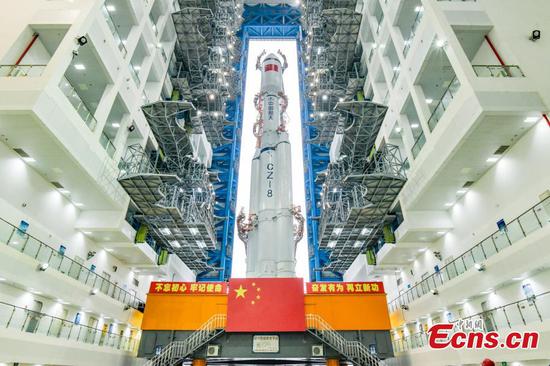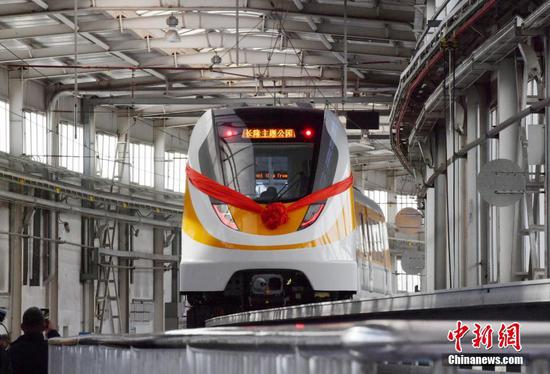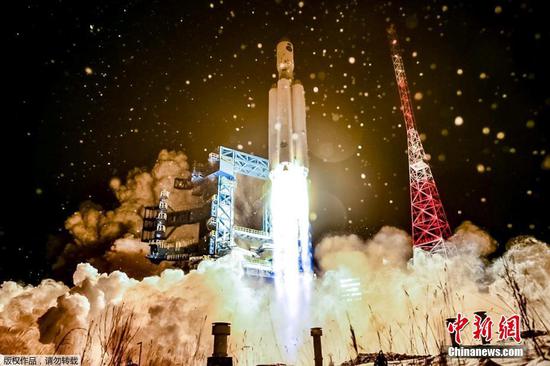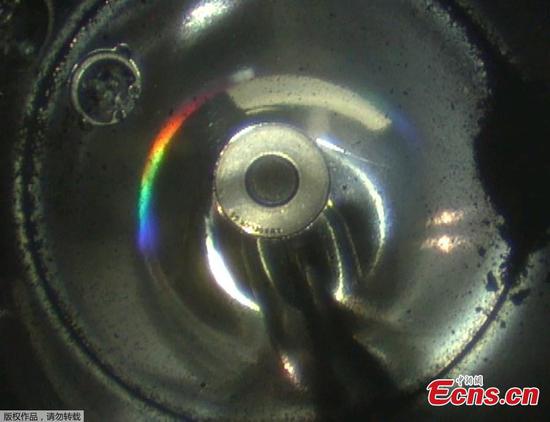
Shoppers at an imported goods store at the bonded port area of Qingdao, Shandong province. (Photo by Yu Fangping / For China Daily)
China will reduce or cancel tariffs on certain imported goods and materials starting in 2021 in a bid to expand imports, boost the domestic market and support the formation of high-standard free trade areas under the country's new "dual-circulation" development paradigm, according to the Ministry of Finance.
The new interim tariff rates on imports, which will be lower than Most Favored Nation tariff rates, will apply to 883 kinds of goods as of Jan 1, including foods, medicines and information technology products, the Office of the Customs Tariff Commission of the State Council, which is based in the ministry, announced on Wednesday.
MFN rates are what nations promise to use with other members of the World Trade Organization, unless there is a preferential trade agreement.
Import duties will be eliminated on some raw materials for medicines for cancer, and on some special formula foods for sick children. The changes are meant to lower prices and ease the burden on patients' families, according to a statement posted on the website of the Ministry of Finance.
Starting on July 1, China will make the sixth reduction on MFN tariff rates on 176 kinds of information technology products, and interim tariffs on nine imported products will be canceled, according to the Office of the Customs Tariff Commission.
These measures are in line with Chinese policymakers' expectations of further lowering import tariffs and increasing imports of high-quality goods and services, experts said, which can also promote the integration of the regional economy.
An official told China Daily the commission would "follow the requirements of an executive meeting of the State Council on the effective implementation of the Regional Comprehensive Economic Partnership signed earlier this year". It also "will work closely with relevant departments under the mechanism of the Customs Tariff Commission of the State Council to promote the preparation for the implementation of tariff reduction".
China will further reduce agreement tariff rates applied on some import goods originating in several countries and regions, including New Zealand, Peru and South Korea, in accordance with China's free trade agreements. The agreement rates under the Asia Pacific Trade Agreement will be applied to some import goods originating in Mongolia starting Jan 1. On the same date, the bilateral free trade agreement between China and Mauritius will also take effect, according to the Ministry of Finance.
Huang Peng, president of Shanghai WTO Affairs Consultation Center, said that the adjustments of agreement tariff rates will facilitate the formation of high-standard free trade areas and improve the efficiency of resource allocation globally, which will support China's new "dual-circulation" development paradigm, in which the domestic market is the mainstay and the domestic and foreign markets complement each other.
Although some developed countries choose the anti-globalization and exclusive governance model, China will keep opening and improving relationships with trade partners, which can improve the resilience of regional value and supply chains and accelerate global economic recovery amid the pandemic, said Huang.
Also, according to published schedules, the import tariff rates of some aircraft equipment will be reduced in 2021.
Tu Xinquan, a professor and dean of the China Institute for WTO Studies at the University of International Business and Economics, said the measure will reduce the production costs of Chinese manufacturers and promote the development of new types of infrastructure construction and high-technology products.
The tariff adjustment is meant to meet the growing demand in the domestic market, in accordance with the economic and social development goals in the 14th Five-Year Plan (2021-25) and for the longer term until 2035, especially to strengthen the global competitive capacity of China's manufacturing industry, said Tu.
Lowering import tariffs will encourage domestic production, such as in aeronautical manufacturing, and mitigate the impact of the COVID-19 pandemic, Tu added.













